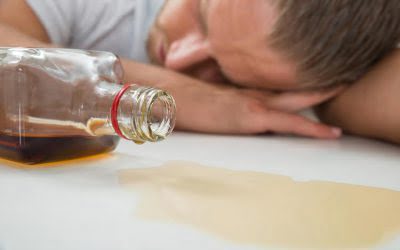Balancing risks, benefits of alcohol
In cases of legal battles over a childrens’ custody, people who use substances are prohibited to interact with their children until they become clean and sober. Once you’ve made a clean break, begin to talk with your children about how they feel, how your behavior influenced them, and affected their lives. Honest conversations can help you rebuild the relationship that has been broken. In the long run, drug-enhanced release of dopamine in the brain will have a negative effect on your life. Your brain will increase its tolerance for your drug, and you’ll need more to get high. Plus, you cannot rely on getting high in order to feel happy for long.

People in recovery from a substance use disorder frequently have problems meeting work-related responsibilities, maintaining employment, and managing money. If you were active in your addiction for a period of time, you may have developed financial problems. A therapist can help you learn new coping skills, develop new thinking patterns, and address any co-occurring mental health conditions that may make recovery more difficult.
Discover what you really want from life
They help keep you motivated and listening and sharing the struggles of others helps remember the reason you’re trying to be alcohol-free. Moreover, it is a great way of making friends and easing back into your social benefits of living an alcohol and drug free lifestyle life. An alcohol-free lifestyle is not only a way to bring about a healthy lifestyle, but also to improve other aspects of a person’s life. Everyone has their own triggers that tempt them to start using drugs again.
- By addressing these issues and rebuilding connections, you create a strong foundation for a life free from addiction.
- Although recovery can seem expensive, when compared to the cost of addiction, it’s well worth your time and effort.
- While the 2020 review suggests that consuming small amounts of alcohol may carry some benefit, consuming large amounts, even occasionally, remains detrimental.
- It results in job loss, financial problems, physical and mental health issues, overdose, and early death.
Removing drug and alcohol use from your life can lead to benefits physically and mentally. Alcohol may offer protective effects for certain body systems and may reduce the risk of developing https://ecosoberhouse.com/ some health conditions, including the following. Moderate alcohol consumption has some potential benefits for the body, but these do not outweigh the risks of alcohol consumption.
Avoiding Alcohol-Related Health Problems
Alcohol ads and public service announcements tell us to “Drink Responsibly,” but if you decide to embrace an alcohol-free lifestyle, it’s equally important to “Stop Drinking, Responsibly.” David Beasley is a compassionate leader and the visionary founder of Design for Recovery Sober Living Homes, where he dedicates his life to helping individuals reclaim their lives from addiction. Volunteering in drug rehabilitation centers or mentoring those struggling can provide a perspective and a sense of purpose in maintaining a drug-free life.
- When you get into treatment, you are not only helping yourself; you are also helping your spouse, children, friends, family, colleagues, and other people in your life.
- Whereas surroundings may have been somewhat dulled before, due to the dampening effect that alcohol produces on the body and mind, the sober individual experiences senses that are true and sharp.
- If these emotions become excessive, they can hold you back from recovery.
That won’t happen overnight and may take a great amount of patience and determination. Quitting drinking will help one understand one’s physical and emotional needs better and help indulge in self-care and improve self-esteem. This might be as simple as avoiding a certain location or asking for extra support during the holidays. However, you might also need to take more drastic measures, such as moving or letting go of former friendships. No matter how difficult it may be, addressing your triggers will help you stay drug-free in the long term.
An Alcohol-Free Life: How To Survive Early Sobriety
Once you’ve got your own life back on track, you can give back to the world around you. Starting with your family, friends and fellow addicts, you’ll find ways to give back to society, big and small. Extra time can be spent helping out at a community center, working on a volunteer project or assisting at church or religious functions. Suddenly you have both the time and the energy to help where you’re needed, and you’ll be able to use your gifts and talents in positive ways to better the world around you. Friendships thrive with mutual respect, shared interests and reliable behavior.
Hosted by therapist Amy Morin, LCSW, this episode of The Verywell Mind Podcast shares how to avoid repeating mistakes and build better habits. John C. Umhau, MD, MPH, CPE is board-certified in addiction medicine and preventative medicine. For over 20 years Dr. Umhau was a senior clinical investigator at the National Institute on Alcohol Abuse and Alcoholism of the National Institutes of Health (NIH). Enhancing any of these can help you improve your overall evaluation of your life and your sense of contentment.


